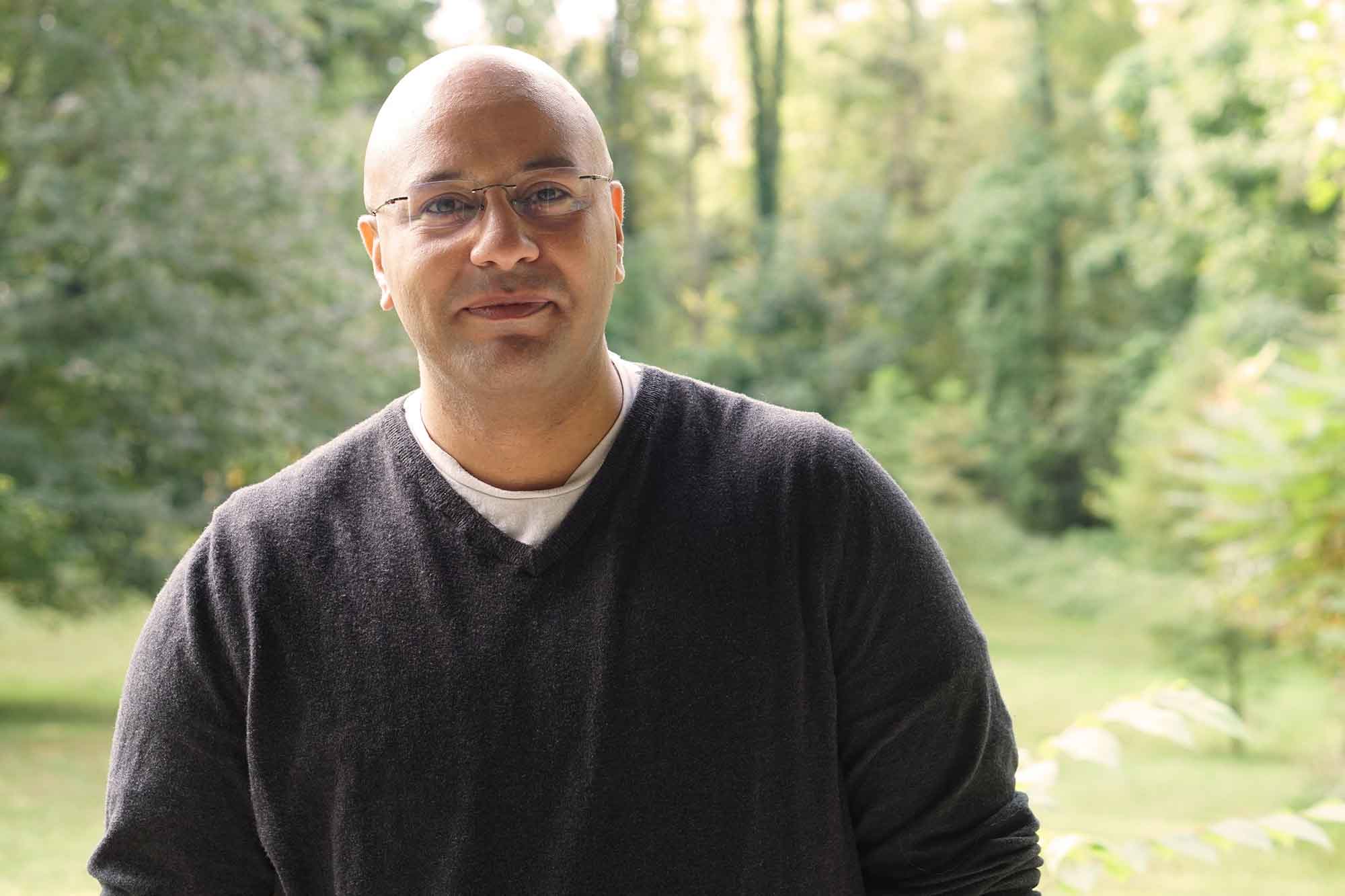Meet Joseph Shaheen, Ph.D.
Social network scientist pursues research on targeted network policymaking and analysis
From a very young age, Joseph Shaheen would pick up college-level books on science and mathematics. As he scrolled through them, he enjoyed the challenge of trying to figure out interesting inventions and innovations based on what he could glean. It was only natural that he would eventually set his sights on a science, technology, engineering and mathematics (STEM) discipline. Shaheen, who holds a doctorate in computational social science from George Mason University, first pursued an interest in engineering, physics and chemistry, but then he found his lifelong passion – a better understanding of human behavior through networks.

Joseph Shaheen, Ph.D., is contributing research to develop an empirically scientific methodological framework for targeting social networks and their behaviors while participating in the Intelligence Community Postdoctoral Fellowship Research Participation Program. (Photo Credit: Office of the Director of National Intelligence)
As a current fellow in the Intelligence Community (IC) Postdoctoral Fellowship Research Participation Program, Shaheen’s research project focuses on how social network analysis can be used to create mathematical and computational tools and methods for targeted policymaking in social networks. The IC Postdoctoral Program offers scientists and engineers from a wide variety of disciplines unique opportunities to conduct research relevant to the Intelligence Community.
At Georgetown University’s Massive Data Institute and the McCourt School of Public Policy, Shaheen is studying the connection between policy and data required to refine the process of targeting and analyzing important adversarial social networks in situations where limited resources are available. Sponsored by the Office of the Director of National Intelligence’s National Counterterrorism Center, Shaheen believes there is a strong ethical need for accuracy when the human repercussions for being wrong are high.
“My research tries to identify methods that can deliver precise, accurate social network target policymaking that are reliable, valid, legal, ethical and report some measure of statistical confidence without relying on unknown mathematical schemes, such as machine learning,” Shaheen said. “Once found, the analyst can explain precisely what they did to locate and analyze a node of interest to any policymaker or legal professional without the obscurity of some machine learning algorithms.”
Throughout his IC Postdoctoral fellowship, Shaheen has spent much of his time researching the historical works of some of the foremost experts of computer science, mathematical and social sciences while simultaneously programming and developing models through code meant to support his research initiatives on target policymaking.
“We are essentially trying to build an empirical and scientific framework that is defensible, utilizing both what we already know about networks and what we can find out through adoption of the state-of-the-art in social network analysis, network science, computational social science and all available modeling techniques,” he said.
Much of the literature Shaheen is utilizing relies on anecdotal evidence and other tools, most of which are not defensible from an empirical perspective.
“The goal is to build and create a framework that can be defended in the court of science and analysis without relying so much on the subjective attitudes and feelings of individual entities, while simultaneously connecting the science with the legal interventions,” Shaheen explained. “Then we can bring a rigor and a disciplined focus to the identification of important adversaries with minimal collateral damage.”
The impact of Shaheen’s research within the IC Postdoctoral fellowship can serve to increase national security and improve public policymaking.
“Imagine a powerful analytical framework that correctly balances the rights of each individual to their privacy and due process with the need to maintain order and safety for all citizens,” Shaheen said.
“Then, imagine if that framework can be used such that it is independent of attempts to influence its rigor and empirical value.”
Shaheen observed that the best part of his IC Postdoctoral fellowship so far is the freedom to pursue intellectual avenues that may not be available with a more focused and targeted program or fellowship.
“That creative freedom ultimately pays off,” he said. “My hope is to find a place within academia and to continue working on public and security policy for quite some time.”
During his time as an IC Postdoctoral fellow, Shaheen has attended several summer workshops, including the University of Michigan’s program on quantitative methods, and has presented his research at multiple conferences such as the first North American Social Networks Conference and the Intelligence Community Symposium. He has also published empirically-reviewed articles in Futures and Foresight, The Journal of Inter-disciplinary History and Academia Letters.
While he recommends the program to others as a best-in-class experience for those who are comfortable researching on the cutting-edge, Shaheen offered a final piece of advice to anyone considering the program: “Make it your own. Follow your vision. Don’t be afraid to be uncompromising on the quality and standard of your work. Doing so will surely pay dividends.”
The Intelligence Community Postdoctoral Research Fellowship Program is funded by the Office of the Director of National Intelligence (ODNI) and managed by the Oak Ridge Institute for Science and Education (ORISE) under an agreement between the IC and the U.S. Department of Energy (DOE). ORISE is managed for DOE by ORAU.
For more information about the IC Postdoctoral Fellowship program visit https://orise.orau.gov/icpostdoc/



